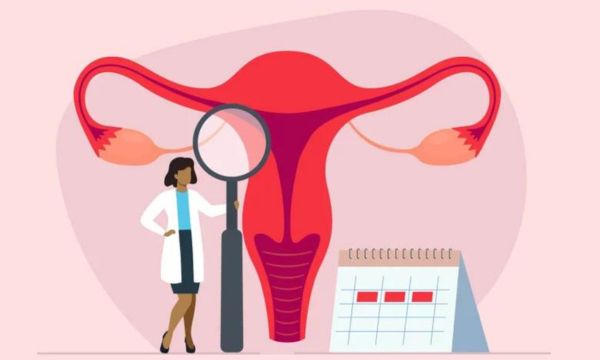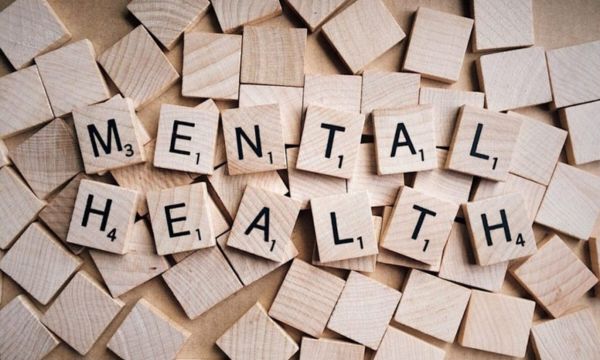Understanding Women’s Health: A Comprehensive Guide
Women’s health is a vast and complex topic that encompasses physical, emotional, and social well-being. It is crucial to have a comprehensive understanding of women’s health to live a fulfilling and healthy life. In this guide, we will delve deeper into various aspects of women’s health, covering topics ranging from reproductive health to mental well-being, and how to maintain a balanced and harmonious life.
Ad
Reproductive Health
- Menstrual Health: Understanding the menstrual cycle, its meaning, and ways to deal with menstrual pain is essential for every woman. We discuss the different phases of the menstrual cycle, and common problems such as PMS, and provide tips for smoother periods.
- Fertility: For women planning to start a family, knowing about fertility, tracking ovulation, and seeking help if needed can be crucial. We provide insight into optimizing fertility and seek medical help if necessary.
- Pregnancy and childbirth: Pregnancy is a transformative experience for women. Our guide outlines the stages of pregnancy, prenatal care, and what to expect during labor. We will also discuss postpartum recovery and newborn care.
Physical Health
- Nutrition: A balanced diet is the cornerstone of good health. We discuss nutritional recommendations for women at different stages of life, including pregnancy, menopause, and beyond.
- Exercise: Regular physical activity is essential for maintaining a healthy body and mind. We explore different forms of exercise suitable for women and the benefits they provide.
- Hormonal Health: Hormones play an important role in women’s health. We explain common hormonal imbalances, such as PCOS and thyroid disorders, and how they can be managed.
- Sexual Health: Open and informed discussions about sexual health are critical. We cover topics such as safe sex practices, contraception, and addressing common sexual health issues.
Emotional and Mental Well-being
- Stress management: Women often juggle multiple roles, which can lead to stress. We provide strategies for managing stress and maintaining emotional balance.
- Mental Health: Mental health is just as important as physical health. We’ll talk about common mental health issues women face, such as anxiety and depression, and offer advice on seeking help.
- Self-Care: Taking the time for self-care is crucial. Our guide will suggest self-care practices that promote relaxation and overall well-being.
Social and Environmental Factors
- Relationships: Healthy relationships contribute to a woman’s well-being. We explore topics such as communication, boundaries, and seeking support in relationships.
- Environmental Health: Understanding environmental factors that impact health, such as exposure to pollutants, is essential to maintaining overall well-being.
Community and Support
- Support Networks: Building a strong support network is essential. We discuss the importance of connecting with other women, whether through local groups, online communities, or support organizations.
- Women’s Health Advocacy: Being informed and advocating for women’s health rights is critical. We will emphasize the importance of staying informed about healthcare policy and advocating for change when it is needed.
- Health education: Encouraging health education for women of all ages is essential. We discuss the importance of educating young girls about their bodies, reproductive health, and self-care.
Grow Old Gracefully
- Menopause: As we age, it is crucial that women understand the natural process of menopause. We discuss common symptoms, treatment strategies, and embracing this new phase of life.
- Bone Health: As women age, it becomes crucial to keep their bones strong. We provide insight into preventing osteoporosis through diet, exercise, and regular check-ups.
- Heart Health: Heart disease is the leading cause of death in women. We explore ways to keep your heart healthy through lifestyle choices and regular heart checks.
Empowering Women
In this guide, we will emphasize the importance of delegation. Women should be encouraged to take charge of their health, make informed decisions, and stand up for their rights. Powerful women are more likely to prioritize their own health and well-being.
Conclusion
In a world where women play diverse and important roles, their health should never be ignored. This comprehensive guide aims to provide women with the knowledge and resources they need to live healthy and fulfilling lives. By understanding all aspects of women’s health, seeking support when needed, and advocating for their rights, women can take control of their own well-being and make positive contributions to their communities and society as a whole.
Remember that women’s health is important and every woman deserves the opportunity to thrive, regardless of her age, background, or circumstances. Let’s work together to create a future where women are not only understood but celebrated for their strength, resilience, and ability to live healthier, happier lives.
FAQs
1. What is women’s health? Why is it important?
Women’s health refers to a woman’s physical, emotional, and social well-being throughout her life. This is important because women have unique health needs and experiences, including reproductive health, hormonal changes, and specific health risks. Prioritizing women’s health ensures that they lead healthy and fulfilling lives.
2. What are the key components of reproductive health?
Reproductive health involves understanding and managing aspects related to menstruation, fertility, pregnancy, childbirth, and postpartum recovery. It’s also about making informed choices about contraception and family planning.
3. How do you, as a woman, ensure a healthy diet?
A healthy diet for women includes a balanced intake of nutrients such as fruits, vegetables, whole grains, lean proteins, and healthy fats. It is important to tailor your diet to different stages of life, such as pregnancy or menopause, and consult a healthcare provider or nutritionist for individualized guidance.
4. Which sports are suitable for women?
Women can participate in various forms of exercise, including aerobic exercise (e.g., jogging, swimming), strength training (e.g., weight lifting, yoga), and flexibility exercises (e.g., stretching). The choice of exercise should match personal preferences and fitness goals.
5. How do hormonal imbalances affect women’s health?
Hormone imbalances, such as polycystic ovary syndrome (PCOS) or thyroid disease, can affect a woman’s reproductive health, mood, energy levels, and overall health. Managing hormonal imbalances may involve medications, lifestyle changes, or both and should be discussed with your healthcare provider.
 Demystifying the Menstrual Cycle: What You Need to Know
Demystifying the Menstrual Cycle: What You Need to Know
The menstrual cycle is a normal biological process that most women experience from puberty to menopause. Although […]
More Your Pregnancy Journey: From Conception to Birth
Your Pregnancy Journey: From Conception to Birth
Bringing a baby into this world is a beautiful and life-changing event. Your pregnancy journey is unique […]
More Women’s Mental Health: Nurturing Well-Being in Every Season of Life
Women’s Mental Health: Nurturing Well-Being in Every Season of Life
In today’s fast-paced world, the importance of mental health cannot be overstated. Women in particular face issues […]
More